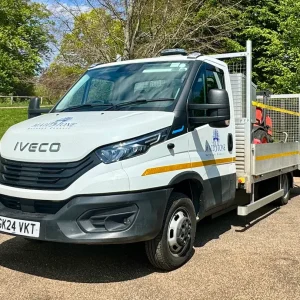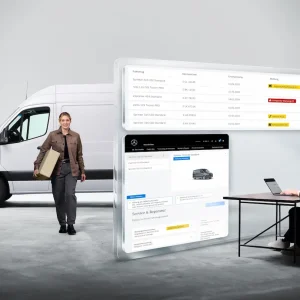Vehicle retailers are often given to remarking that by the time customers come through their showroom doors they are already extremely well informed about the product they are interested in.
This has not always been the case, and the reason van buyers can now come armed with such knowledge is that they can pick it up from the manufacturer’s website on their laptop, tablet or smartphone before having to face the hard sell in the dealership itself.
In fact, checking out vans online can save customers time and fruitless journeys by enabling them to eliminate unsuitable LCVs without having to leave their home or workplace.
But some manufacturers do a better job than others in putting together their virtual showrooms, and every year What Van? assesses the websites of the biggest players in the UK market across a broad range of criteria to see which is best serving its prospective customers from a digital point of view. It is the result of that annual survey that gives us the winners of this year’s Website awards category.
In our assessment, Volkswagen toppled Citroen from the top spot it had held for the previous two years, and was well ahead of its nearest challenger Mercedes-Benz, which finished just above Fiat Professional. Toyota and Citroen took fourth and fifth places, respectively, in this year’s listing.
Volkswagen performed consistently strongly across almost all of the 10 categories we examined.
We praised the site for being easy to use, competently covering a wide range of products and points of customer interest, and for being distinct from the brand’s passenger car offering – an important consideration because light commercial vehicle websites can tend to look like a bolted on afterthought compared with the attention and resources lavished on the more consumer-oriented car portals.
A website’s appearance can determine how long a user will keep looking at it, and VW’s site has a clean, smart and functional design, in keeping with the brand’s ethos, which makes it easy to navigate.
The manufacturer added a new van configuration tool in 2016 to enable customers to select and cost up the right model for their needs. This is a useful extra and one that not all LCV websites possess.
The VW LCV site features an excellent facility to download brochures that is easy to find and includes an option to bundle in an accessories and price list.
Better still was the response to a simple question we emailed to all the manufacturers surveyed. An accurate answer came within 24 hours with a link to additional information. The response to an enquiry on Euro6 emissions standards via the customer enquiry telephone number was also prompt and definitive.
The dealer locator tool is impressive too – it links from the homepage and lists light commercial vehicle specialists in the results.
Social media is often overlooked on van sites but VW is making a real effort, with bespoke LCV feeds and lifestyle content, to promote its line-up on these platforms.
The only areas to let the brand down were its live chat service, which is based on the car site, and its mobile site because some internet pages do not convert.
Highly Commended: Mercedes-Benz

The runner-up spot in 2017 goes to Mercedes-Benz. Up a place from third in last year’s What Van? website review, Mercedes scored highly for its excellent social media service, with UK van channels on all the major feeds containing decent light commercial content.
The manufacturer also provides one of the best mobile phone sites, with clear product-focused information, convenient links and instant access to brochures.
Extras include an augmented reality app, a history of Mercedes-Benz vans, an events calendar and a fleet section.
The site is at least competent in all aspects and above average in most, with special mention going to its phone service and dealer finder.





